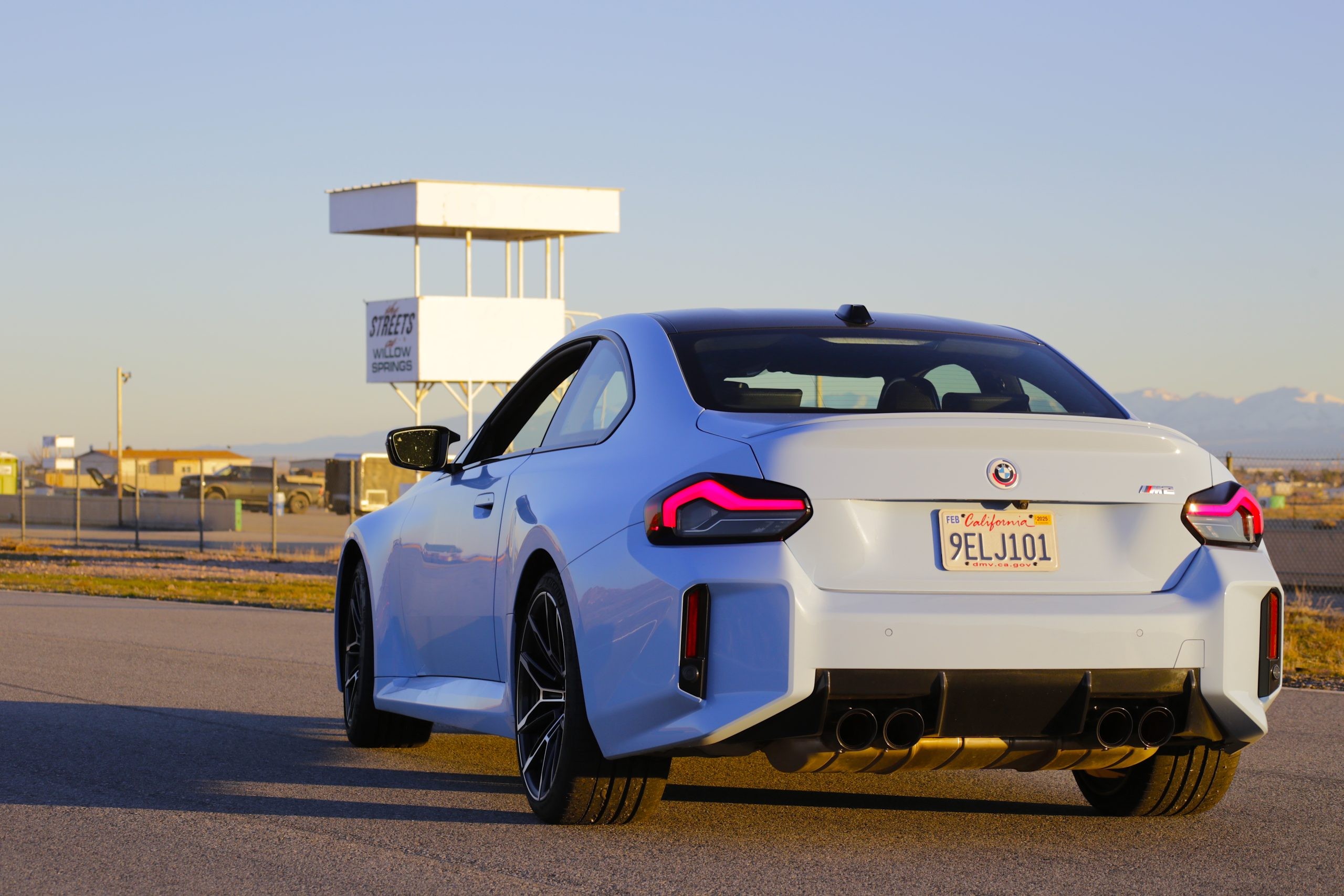We are currently witnessing a significant shift in the automotive world. The rise of electric vehicles and the gradual decline in internal combustion engine production are undeniable trends. Simultaneously, the relentless pursuit of horsepower in ICE cars seems to be reaching a plateau. Adding to this complexity is the dwindling demand for manual transmissions, signaling a potential end to their era.
Amidst this changing landscape, the 2024 BMW M2 six-speed manual emerges as a defiant statement. It’s a car that embraces controlled drifts and roars its internal combustion engine, representing perhaps the final ode to the manual M car from BMW.
Recently, I had the privilege of experiencing BMW’s latest and most compact M model on the winding roads of Southern California’s mountains and the challenging Streets of Willow circuit at Willow Springs International Raceway. For evaluating a car’s powertrain and chassis capabilities, this combination of environments is ideal. Here’s why this latest—and likely last—generation of the six-speed manual M2 stands out as an exceptional coupe for driving enthusiasts.
Interior and Exterior Focus
Aesthetics are always subjective, especially when discussing BMW designs. However, the M2’s exterior styling is arguably a success. Its kidney grilles, headlights, flared fenders, exhaust finishers, and broad rear quarter panels are undeniably appealing. This is a powerfully built coupe, and its aggressive front-end intakes clearly communicate its performance intentions. These intakes feed air to a heat exchanger for the engine’s air-to-water intercooling system, along with other cooling systems for water and oil. This ensures sustained peak performance during demanding drives on twisty roads or track sessions. It’s unmistakably distinct from a standard 2 Series.
The interior offers surprising spaciousness for a coupe, coupled with excellent all-around visibility. My test vehicle was equipped with the optional $9,900 Carbon Package, which includes incredibly supportive carbon fiber bucket seats and a sleek carbon roof. As someone who is 6 feet 3 inches tall, the fixed carbon roof provided welcome headroom, even allowing me to wear a helmet on the track without adjusting the seatback – a rare convenience in modern vehicles. While the seats can be slightly challenging to enter and exit, and the left leg bolster felt a bit intrusive for my taller frame, potentially affecting clutch comfort, this is unlikely to be an issue for most drivers.


